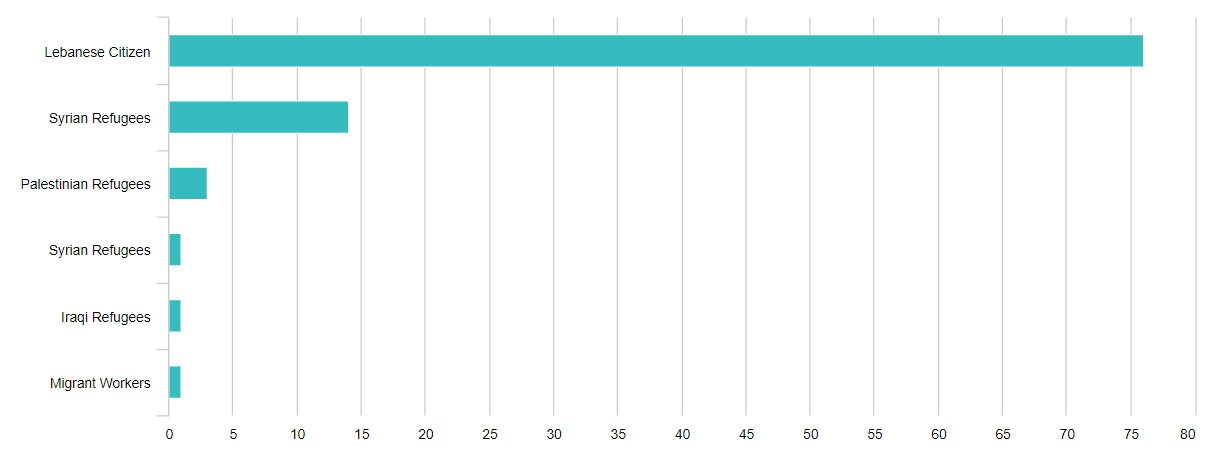
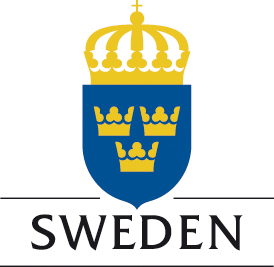

Issue 14, June 2019
About the newsletter
Why the Gender Equity Newsletter?
This newsletter aims to connect gender actors and practitioners in Lebanon through the exchange of expertise, in an attempt to create a space for better collaboration, networking, and equal access to knowledge, research, and information. Issues cover the work of actors, their activities, and projects, in addition to recommending relevant resources and tools, as well as information and statistics relevant to gender work in Lebanon.
The gender equity newsletter is a part of the Gender Equity Network, a project by Lebanon Support in partnership with Diakonia
The Gender Equity Network is an online collaborative platform. It is part of Lebanon Support’s Civil Society Knowledge Centre (CSKC) and brings together civil society organisations, researchers, practitioners, and experts to enhance local and national capacities, improve access to knowledge and its development, and provide evidence-based research, information, and literature on gender issues and concerns.
1. Featured resources on the Gender Equity Network
Breaking the political glass ceiling: Enhancing women's political participation in Lebanon
By: Lebanon Support
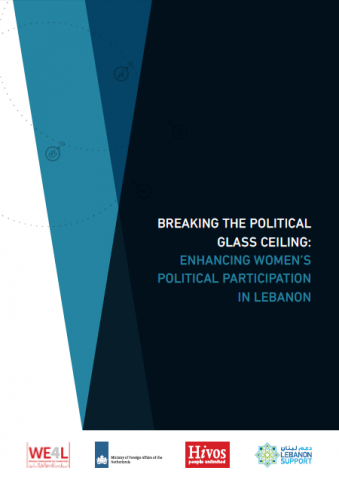
This policy brief was developed based on an in-depth report titled "Women's Political Participation: Exclusion and Reproduction of Social Roles. Case Studies from Lebanon" in adiition to discussions and insights gathered during a consultation workshop held on 8 November 2018, which marked the participation of women who had taken part of the research, as well as activists, representatives of civil society organisations, and academics.
Drawing on this study, the aim of the policy brief presented here is twofold. First, it provides a synthesis of the study’s key findings. Second, it proposes action-oriented and practical recommendations to actors at the macro-level (Lebanese government, political elite), the meso level (the broader local and international civil society in Lebanon; civil society organisations; movements; syndicates), and the micro-level (women’s individual experiences), to help to address the barriers faced by women.
This report is available in both English and Arabic on this link, and is published as part of the “Women Empowered for Leadership” project, in partnership with Hivos International.
Interactive graphs based on our "Mapping of violence against women"
Lebanon Support has published 3 interactive charts visualise data trends from our "Mapping of incidents of violence against women", in collaboration with KAFA (enough) violence & exploitation, in various formats:
Number of incidents by year
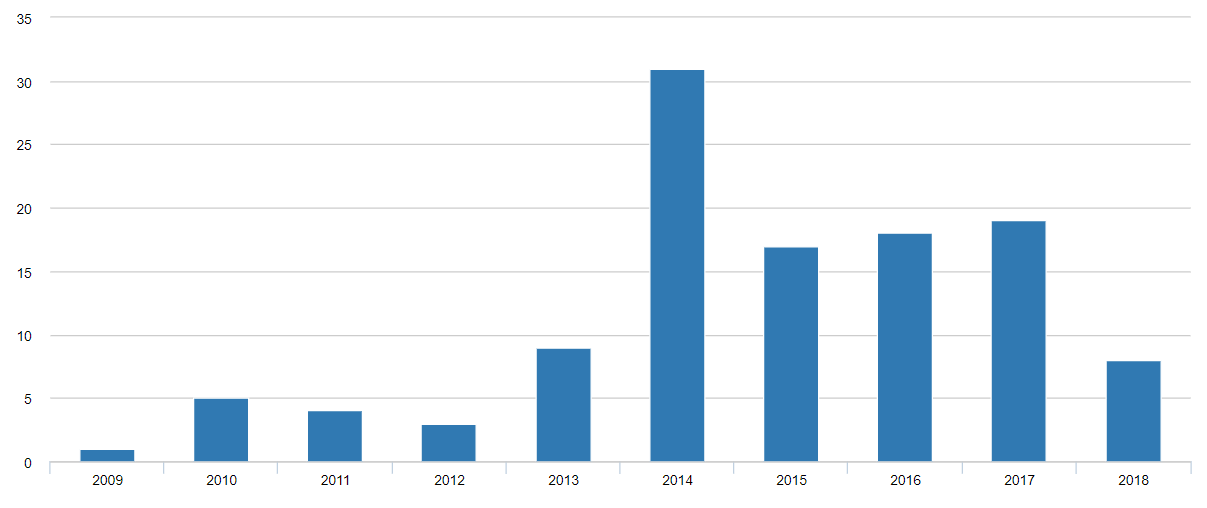
Number of incidents reported by victim’s population groups
Number of incidents by type of violence

Explore all three interactive charts here.
Data from local centres - Association Najdeh
These interactive graphs visualise data from Association Najdeh’s call centres in the camps of Borj el-Barajneh, Beddaoui, Bekaa, Chatila, Saida, Naher el-Bared and Tyre. Association Najdeh’s local centres have been active since 1978 and offer training, psychological support, preschool activities, as well as domestic violence prevention and intervention.
The data focuses on reported cases relevant to gender-based violence, split into three categories:
Type of violence reported by sex
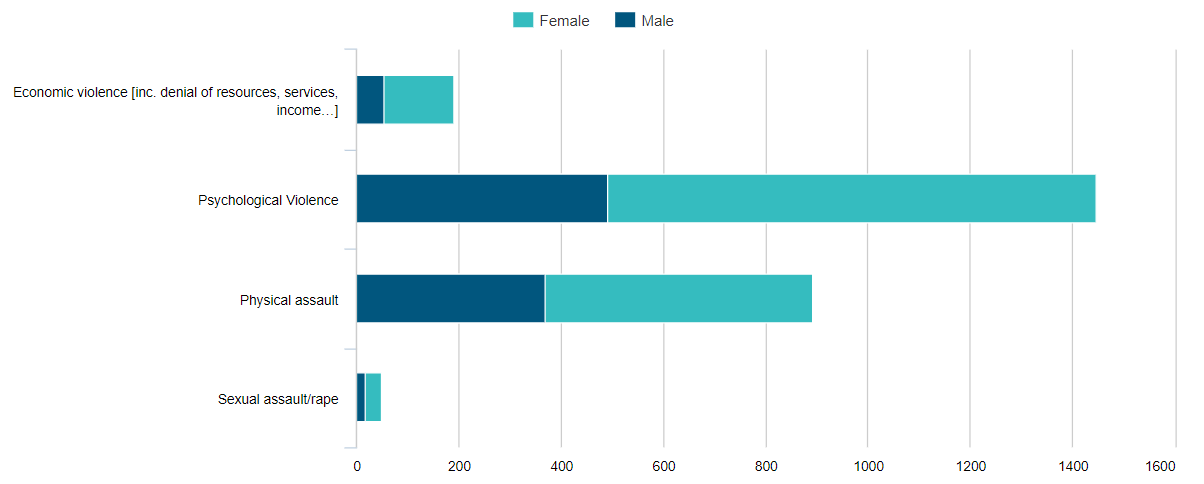
Type of violence by age range
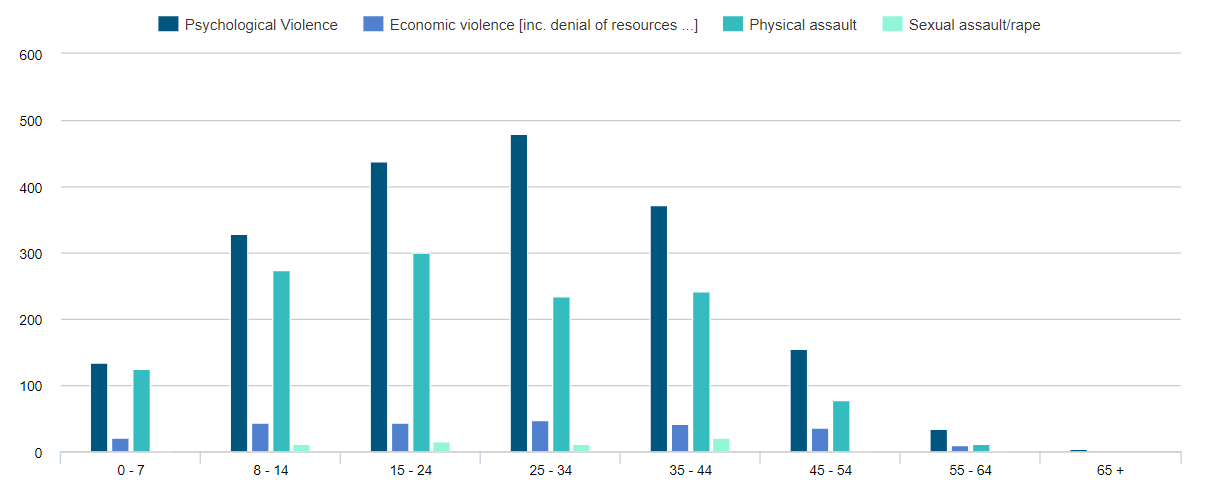
Number of reported cases by nationality
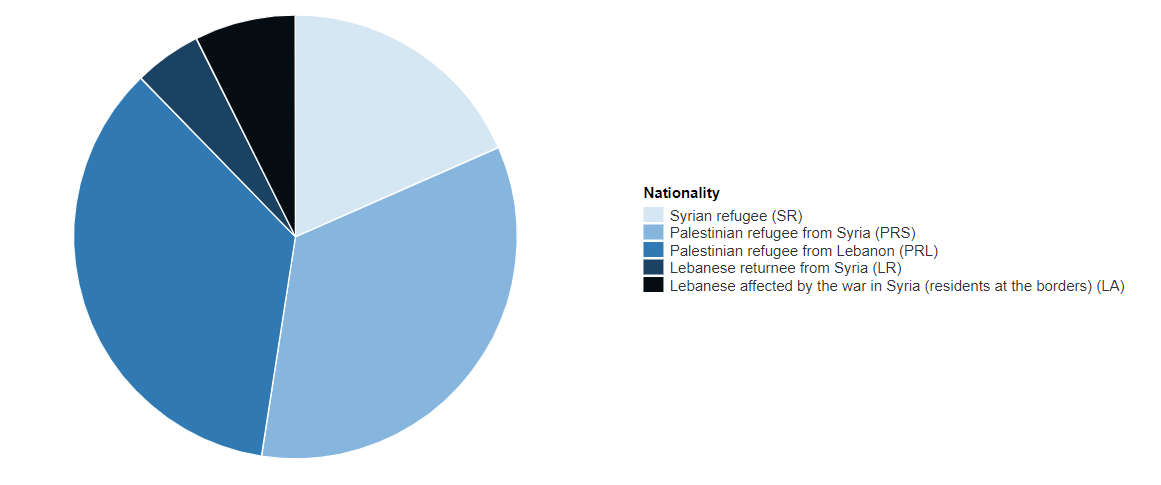
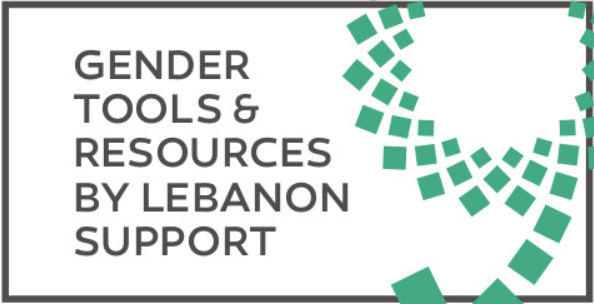
You can view all our “Gender Tools and Resources” on the interactive brochure, situated on the right side of our Gender Equity Network page. The brochure, available in both English and Arabic, highlights the gender products in each of our three programmes, including reports, bulletins, infographics, interactive maps, timelines, and testimonies.
2. Events organised by Lebanon Support
On Friday 9 November, Lebanon Support organised a closed workshop at Key Apart Hotel with female research participants in order to present and discuss the research findings on barriers hindering womens’ full political participation in Lebanon, and develop recommendations for the ensuing policy brief after consultations with the participants. This increased the participants’ ownership of the recommendations produced, which enhanced the effectiveness and take-up of recommendations published.
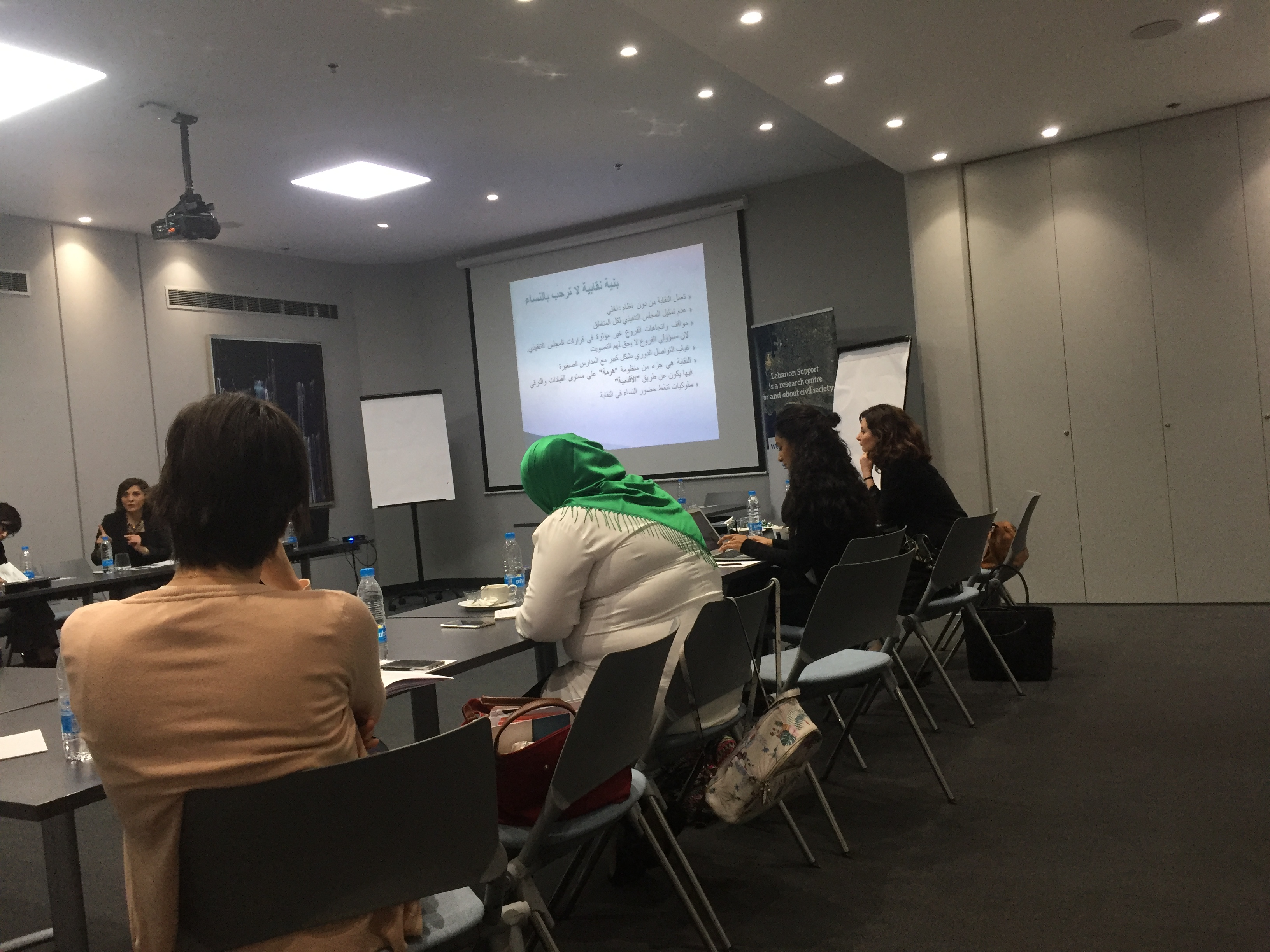
This roundtable allowed participants to reflect critically on women’s political participation in their respective organisational structures indicating that the research findings succeeded in providing impactful knowledge on the challenges faced by women. Based on the discussion, a set of strategic recommendations to enhance women’s political participation was developed.
This workshop is organised in partnership with Hivos International - Beirut Office, within the Women Empowered for Leadership programme (WE4L).
3. FOCUS ON
Women, Power, and Politics: Timelines and Milestones
This timeline aims at documenting historical, social, and political achievements, notable events, and outstanding figures of the women’s movements in Lebanon as well as pioneering leader women’s trajectories. “Women, Power, and Politics: Timelines and Milestones” complements Lebanon Support’s existing timelines on “Women’s Achievements in Lebanon”, and “Women’s Movements in Lebanon” by merging their content, expanding on it, and filling the gaps in the data.
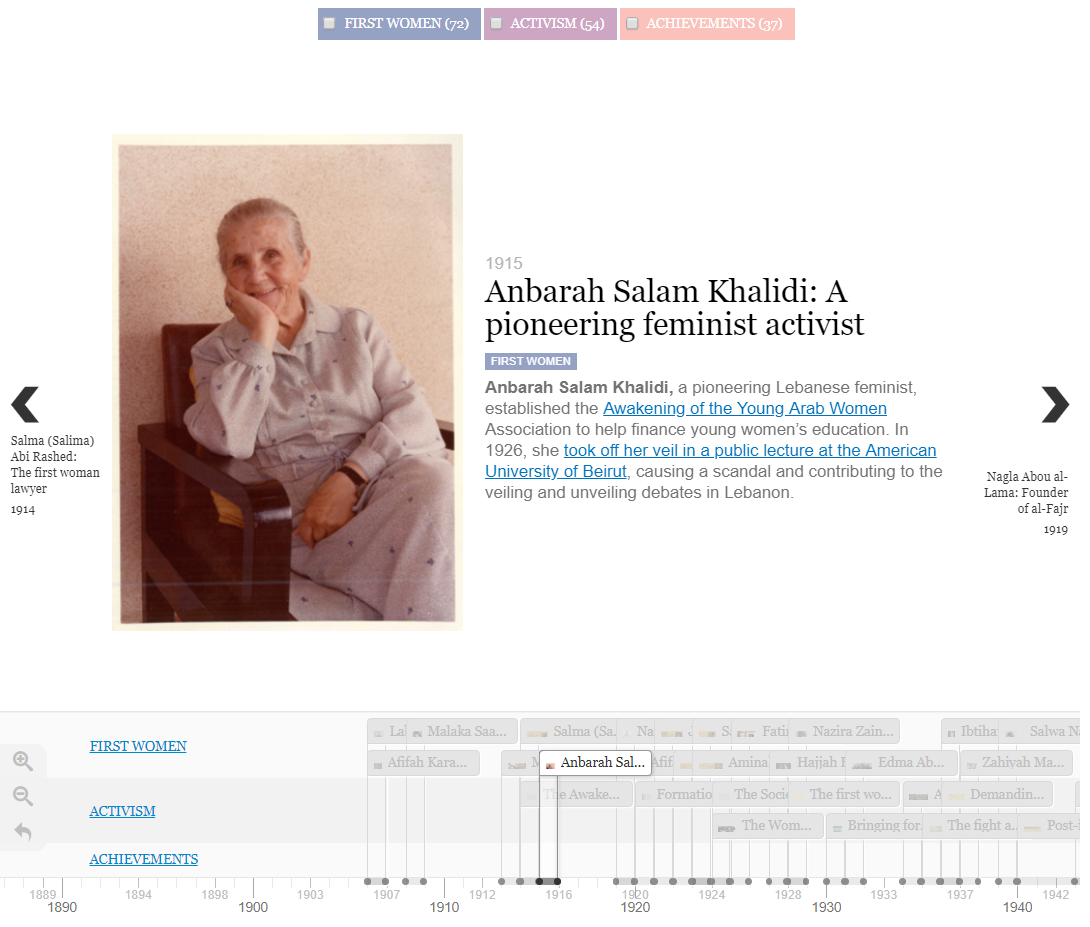
From the first woman to run for Lebanese Parliament to the annual Labour Day marches of migrant domestic workers who are excluded from national labour laws and governed by the restrictive Kafala system, the timeline provides well-organised, easily-accessible data that took two years to gather in the hopes of both honouring the women who furthered the feminist movement to where it is and inspiring an upcoming generation of female leaders. The timeline also allows researchers, activists, and everyday civilians to draw parallels between past and present.
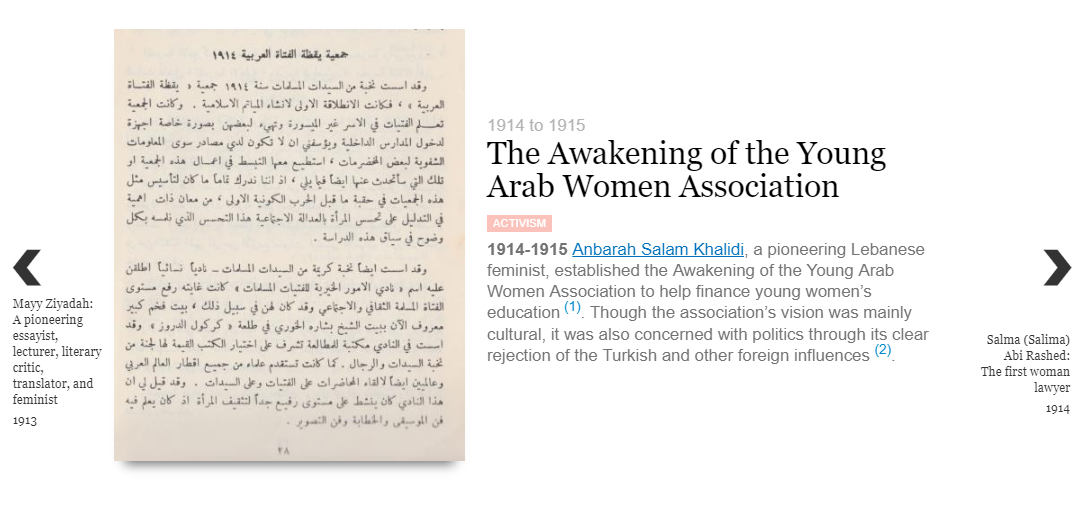
The content of the timelines was developed by Lebanon Support based on a 12 months long research. Visuals and archival content were gathered by URIKA. This timeline was developed in partnership with HIVOS through the WE4L programme, funded by the Netherlands Foreign Ministry FLOW fund, and was first published on Hivos’ website on this link.
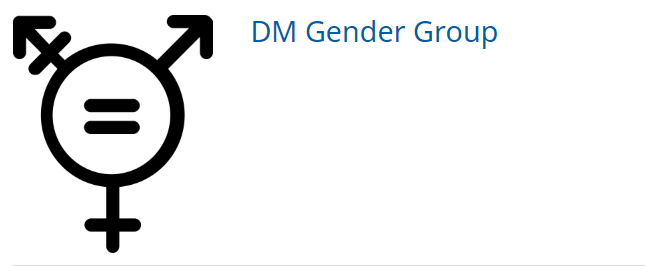
In the last month, Lebanon Support introduced several discussions on the Daleel Madani Gender Group* inspired from the latest gender trends and updates occuring in Lebanon and the region.
The first discussion discussed the role of CSOs in mental and sexual health awareness, inspired by the term “hormones” from Lebanon Support’s bilingual Gender Dictionary.
The second discussion talked about the newest proposed legislation on women’s Nationality rights by the National Commission of Lebanese Women (NCLW). The discussion highlights the gaps in the current draft law and possible rectifications.
The third and newest discussion linked to the recent ban on Grindr - the gay-friendly dating application - by the Ministry of Telecommunication. The discussion questions the role of CSOs in safeguarding freedom of expression and LGBTQIs rights.
*Daleel Madani Groups are online collaborative spaces that aim to bring together civil society actors around specific thematic issues for discussion, concerted action, and planning of campaigns and collaborations. The Gender Group on Daleel Madani, developed in partnership with Diakonia, features updates relevant to gender issues in Lebanon.
4. Gender Discussions
On May 21, 2019, the National Commission for Lebanese Women (NCLW) presented a legislation proposal on the right of Lebanese women to pass on citizenship. Advocates of this cause have criticised major aspects of the draft law, it’s populist rationale and most importantly as it is not based on clear human rights standards. Indeed, the law not only enshrines discrimination between women and men but also creates a new type of discrimination between the children of Lebanese mothers as it only applies to children who are younger than 18 years old. Individuals older than 18 would only be eligible for a “green card” that restricts them from their political rights, the right to hold public office, and the right to own property. The law also does not apply to husbands, as it only applies to individuals related to women by blood.
My Nationality is a Right for Me and My Family Campaign renounced this law, stating that it discriminates against Lebanese women by maintaining a distinction between women and men’s equal rights in granting citizenship to their families. They also called on the parliamentary committee for the study and amendment of this law. Here are some experts’ perspectives on this topic;
Lina Abou Habib Executive Director of the Women's Learning Partnership (WLP) and the Chair of the Board of the Collective for Research and Training on Development - Action (CRTD.A)
“As a feminist activist who has worked on this specific issue since 2000, I am dissatisfied but not surprised by this law proposal which comes to further institutionalise inequality. Though pretending to be "pouring into an empty cup", as the NCLW president says, the law is actually without retroactive effect. Indeed, the only beneficiaries will be children born after the law whilst all the others, under or over 18, will have to go through procedures to enjoy this right. This new law in fact creates inequalities within the same family! In addition, thousands of women activists who have relentlessly lobbied in the streets and with the media and policy makers will actually be denied this right. On the other hand, we have started to hear politicians already rejecting the possibility of including Syrians, Palestinians and other Arabs amongst the future "beneficiaries" under the guise of safeguarding national sovereignty. This is clearly paving the way to further discrimination and inequalities which are reinforced by this new law.
My personal feeling on that is this law will pass with additional restrictions. It will be a new sexist and racist law which will disregard Lebanon's commitments to CEDAW and other international Human Rights obligations. Whilst this law may help a few individuals, it will further exacerbate the subordinate and unequal position of women as citizens of Lebanon.”
Manar Zaiter Consultant and Expert
“For years, several campaigns have been held in Lebanon, especially those pertaining to the nationality law, notably the My Nationality is a Right for Me and My Family campaign; and there are many draft laws including amendments to this law. The new law, submitted by the National Commission of Lebanese Women (NCLW), is of poor quality and violates human rights approaches and Lebanon’s international commitments. Fragmenting rights is a threat to human rights values and principles. Political considerations and phrases like “that is all there is” or “the maximum level” cannot override rights.
The draft discriminates between a child and another, and excludes children above 18 from accessing their right. The proposal is based on the preamble of the constitution; however, this preamble obliges Lebanon to abide by international conventions and speak for equality without preference or discrimination. The proposed law differentiates between men and women, and only mentions children without mentioning the husband, while the current law grants a foreign wife of a Lebanese man the right to acquire nationality within a year of registering their marriage. The fact that the National Commission of Lebanese Wome (NCLW) proposed this law and not a political party should have, with all due respect to its efforts, represented all women and ensured their rights, away from political and demographic discourses. To say that the proposal is a first step to reach the parliament, then the ceiling of demands will be raised is not strategic nor accurate as our demands should be made clear ahead of devising advocacy strategies, which are a different matter. “The principle of gender equality means that every child born of a Lebanese father or a Lebanese mother must be considered Lebanese."
After passing this law, discrimination among members of the same family will occur. Discrimination against certain nationalities, notably Palestinian and Syrian nationality, pertains to the political and popular discourses against refugees, and the impact of the political situation on the overall administrative decisions in Lebanon and on relevant organs and bodies."
5. Newest gender organisations registered on Daleel Madani
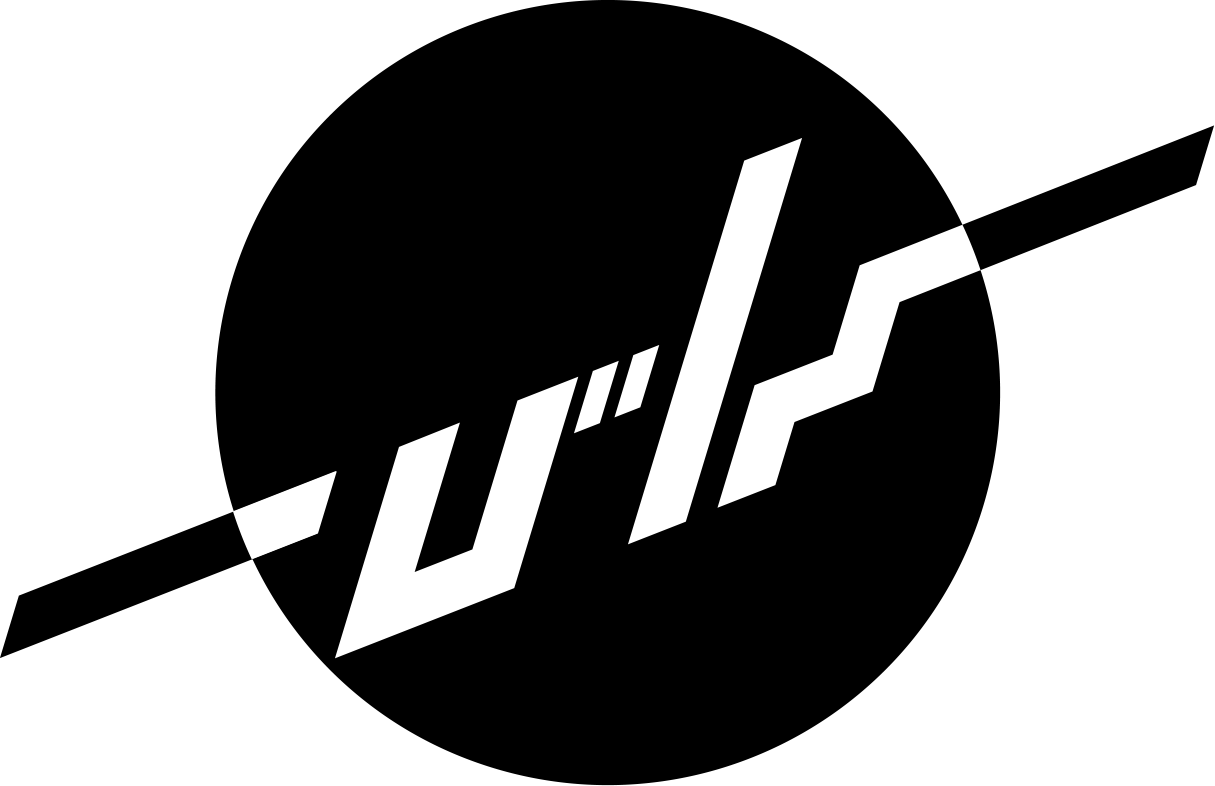 Qorras:
Qorras:
View their profile on Daleel Madani here.
Qorras is a group that aims to work on knowledge relating to the issues of gender and sexuality in the MENA region, while acknowledging that the work it does is mostly inspired and based in a more Levantine, Lebanese context. Qorras focuses on collecting, producing, and disseminating crucial knowledge in the broader sense of the word, all other approaches come to feed this main goal. As a result, Qorras works on the following to theorize personal and subjective experiences, to build on the work of others, to document processes, to disseminate creatively.

Young Women’s Christian Association:
View their profile on Daleel Madani here.
The Young Women’s Christian Association Beirut (YWCA) are a local civil society organisation whose mission is to promote the collective power of women in order for them to achieve equal rights, health, security, dignity, freedom and sustainable environment for all.
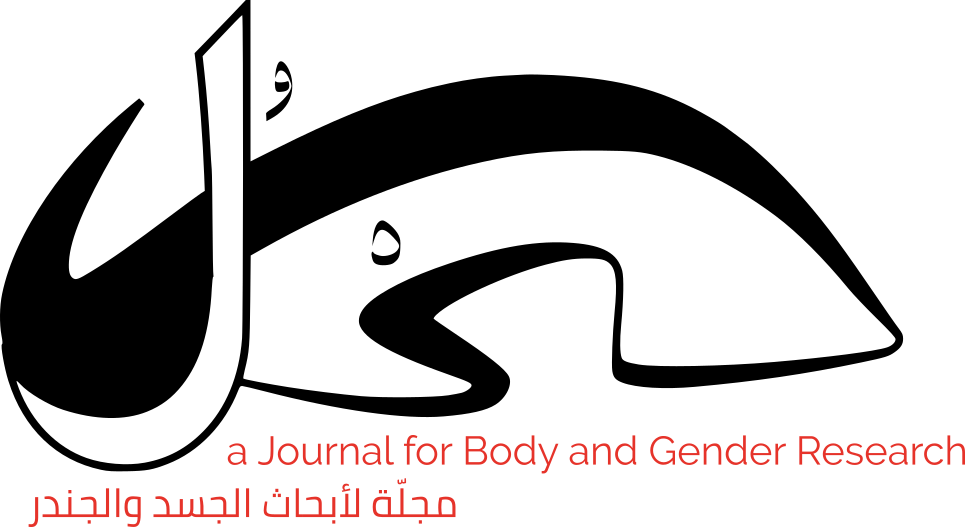 Kohl Journal - Intersectional Knowledge Publishers
Kohl Journal - Intersectional Knowledge Publishers
View their profile on Daleel Madani here.
Kohl: a Journal for Body and Gender Research s a progressive, feminist journal on gender and sexuality in the Middle East, South West Asia, and North Africa regions. Kohl Journal is a biannual, multilingual, open access, and peer reviewed academic journal. It targets mainly, but not exclusively, graduate-level academics, fresh graduates, independent writers, activists, and researchers who are not affiliated with an academic institution.
6. Gender news
. From Lebanon
- On June 26, parliament members passed a law exempting children of Lebanese mothers married to non-Lebanese and holders of a residence permit from obtaining work permits.
- On January 31, after 9 long-awaited months of negotiations, the Lebanese new cabinet includes four new women ministers, a historical record for women in Lebanon. These women took the leadership of the Ministry of Energy and Water, Ministry of State for Administrative Affairs, Ministry of Interior and Municipalities, and Ministry of State for Social and Economic Rehabilitation for Youth and Women.
- On January 17, mobile network companies Alfa and Touch, banned Grindr, a popular gay dating application. On January 23, the companies confirmed receiving orders from the Ministry of Telecommunication which requested the ban under the pretence of security issues. On May 28, the ministry took the ban a step further by releasing a public memo to fully implement the ban on all national telecom companies. Digital rights and LGBTIQ rights organisations, condemned the ban as a breach of freedom of expression and association, with Grindr for Equality also issuing a statement about it.
- On March 9, hundreds took to the streets to demonstrate under the slogan “For a Just Economy, We Will March” as part of International Women’s Day. The protesters included Lebanese women who called for their right to nationality and full citizenship, but also migrant domestic workers from the Migrant Community Center who called for the abolition of the discriminatory Kafala system.
- On March 30, Lebanon's top military prosecutor, Judge Peter Germanos, decided against the prosecution of four military personnel under Law 534, a legislation which has been historically interpreted to criminalise homosexual acts in Lebanon. This has been considered as a landmark decision, a first in the Lebanese military court system which follows a trend of decriminalizing same-sex relations that began in Lebanon’s civil courts in 2009.
. Around the world
- From the 22 till the 25 of March, “Mawjoudin” (We Exist), a queer film festival was held in Tunisia, where homosexuality is illegal. The film festival features a series of short and medium-length films from Africa and the Middle East, focusing mainly on the issue of non-normative gender and sexuality, breaking thus the taboos around this theme.
- Since April 6, Sudanese female activists have been leading the new pro-democracy movement in Sudan, through protests and sit-ins in Khartoum, to put pressure on the ruling military council and President Omar Al-Bachir.
- On May 15, the Republican State Senate in Alabama passed a near-total ban on abortion, making it a crime to perform the procedure at any stage of pregnancy. The new abortion ban spurred public outrage and has been seen by many as a step backwards in the fight for women’s rights.
- On February 6, Human Rights Watch released a report exposing targeting and attacks of women’s rights groups by the Polish government. Through raids and defunding, often with little warning and no clear rationale, Poland’s ruling Law & Justice party has been labelling women’s rights organisations and their work as dangerous to familial and traditional values.








